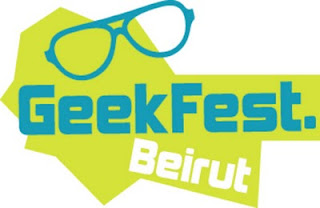The journalist is minding his own business when the phone call comes on his mobile. Wows! It’s the Dubai Shopping Festival on the line! The Festival arranges to meet the journalist on Seef Street at 5pm. The journalist’s daughter wants to come to the interview because her mommy told her about the Festival. The journalist calls the Festival to let it know his daughter will be coming. The area was like a wedding, with people from all nationalities having fun. He looked around to find his Festival friend, describing the music and people, the perfume market antiques market and so on at great length.
The journalist is puzzled. Despite all this fun and laughter, he can’t seem to find his friend the Festival. He puts in a call: “Where are you?”
“I’m next to you!” says the Festival, who obviously has a tremendous and rather coquettish sense of humour. “Follow me to Riqqa Street where I am now – there are thousands of people here who won’t let me leave.”
The journalist is excited at his scoop, the first time in 15 years that the Dubai Shopping Festival has agreed to speak. Along with his daughter he rushes to Riqqa Street. “What’s this?” asks his daughter.
“This is the joy that the Festival brings!” says dad.
“Now I know what mummy meant! But don’t say that your friend didn’t show up! He’s all around us in the fun and joy we see!”
Undaunted, the journalist calls the Festival again in pursuit of his scoop – the first talking Festival interview. “I won’t disappoint you!” says the Festival. “Meet me in Global Village. First you have to go to Jumeirah Beach Walk where my heritage is displayed – your daughter will love it!”
“Don’t worry my daughter! We shall meet the Shopping Festival in Global Village!” says the excited journalist.
The journalist finally meets the Dubai Shopping Festival at Global Village. “Are you ready for the interview?” gushes the journalist.
“Completely!” affirms the Festival.
“Why this place?” asks the journalist.
“Because this is where the Arabs unite – I’m very concerned with Arab Union,” says the Festival. “On this land is where the Iraqi people became one!”
The Iraqis are divided by policy, apparently, but united by Dubai – as are the Lebanese and Syrians in this great mixture of peoples – “This, my friend, is why I came into existence!” says the Festival, using litotes to great effect.
“I owe my 15 years of success to Dubai and its wise leadership and people who allowed me to become such a great event. It is because of Dubai that I am the number one shopping festival in the Middle East. People from all over the world come to watch my annual celebrations awaited by everyone thanks to Dubai.”
Unbowed from following his hard-nosed journalistic instincts, our man yielding the pen that is mighter than the sword throws in a curve ball. “They say you are just an occasion for buying and selling stuff.”
“This is the wrong way to look at things!” Thunders the Festival. “Sure, there are opportunities to shop but I am a greater expression of joy than this, with events every year! I came to tell the world that this Emirate is a land of love and peace and to tell the world that our winning trade is the basis for peace in the world!”
“Where is your daughter?” asks the Festival, demonstrating a surprising ability to make sudden and oblique changes in conversational direction.
“She’s over there playing with a group of friends.”
“Don’t worry, she’s safe – the Al Ameen service provided by Dubai Police for parents’ protection ensures peace of mind!”
The journalist is dedicated, obviously, to putting the hardest questions to the Festival and smacks it round the head with the immortal: “So what do you think of the launch of the Metro and the Burj Khalifa?”
“I see them as the best response to people addicted to rumours. Projects and achievements keep happening – they don’t stop and won’t stop. Days will pass by and I will celebrate my 100th birthday with Dubai’s head high and embracing the sky just as its tallest tower embraces the clouds,” says the feisty Festival.
“Who do you blame for this?”
“To the old people at the wedding who do nothing but talk when our motto is ‘do nothing but work’, I say come to Dubai to see the malls and parks – talk to the people who say that Dubai is in the heart and mind together.”
“Is this why you have talked this year?”
“I was provoked by these people who are blind. Dubai will remain great in spite of them.”
The journalist gathers his papers, delighted at his scoop. And we must share in his delight as we benefit from the wise words of the world's only talking Shopping Festival. That award for great journalism during Dubai Shopping Festival is surely in Al Khaleej's bag now!
Next week: we interview Jebel Ali Free Zone...
Health Warning: This article is an extract from the original Arabic rather than a verbatim translation. For the full effect go to Arabic lessons or get a colleague as talented as Marwa Yehyia to translate it for you so that you can dash down the better bits whilst trying to maintain your composure enough to type.




